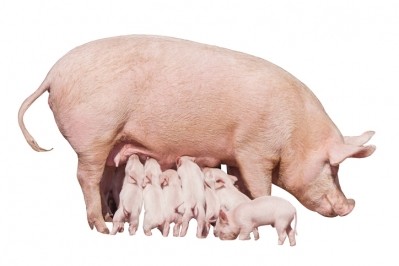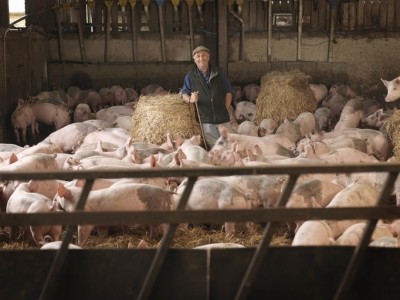Cargill aims to deliver productivity gains for Asian farmers

The US agribusiness giant has been active in that part of the world since its first office was established in the Philippines in 1948. It currently has around 54,000 employees working in 134 plants across 16 countries in the APAC area.
Adriano Marcon, Cargill’s group leader for global animal nutrition, spoke to us about the company’s new facilities in China and Vietnam as well as how it is committed to advancing farm productivity in the region.
The region is a critically important one for Cargill, he said. “It is a strategic part of our portfolio. Our businesses are doing great in Asia. We are excited about the future opportunities as well. That has led to investments.”
Boosting feed production capacity in China
The organization is looking to strengthen its feed production capacity in China and has been engaging with strategic partners in that respect. “We have two new plants coming online this year. They are focused on swine feed. Both facillities will add about 400,000 tons of capacity for us in the Chinese market, which will really support our growth.”
Currently, Cargill has around 2m tons of feed production capacity in China.
The company is also building a global innovation center in Shanxi province, again in conjunction with a partner. The facility will be located inside a new 2,500 sow swine farm built by Changrong, where independent and proprietary sow-related research projects will be conducted by Cargill Animal Nutrition.
Animal production in China in the past few years has faced a number of challenges, most notably the African Swine Fever (ASF) outbreak, which decimated the domestic swine herd. While the country’s swine herd has more or less recovered now, ASF is endemic in China and remains a threat, noted Marcon.
Cargill, he said, has been focusing on ways to support farmed animal production in China, to help herds fight disease and viruses, leveraging its global additive and premix portfolio to boost the animals’ immunity.
Feed hygiene is another critical pillar of its strategy in that market, ensuring that feed is not a vector for viruses, said Marcon.
Chinese animal farming still has a productivity gap. Cargill, as it operates in 36 countries globally and engages with some of the biggest swine producers in markets like Spain, the US and Brazil, can use the insights it has gleaned from such interactions to support swine farmers in China, he continued.
“The swine farms in China are becoming bigger, and extremely professional. The Chinese are early adopters, and they work hard. They are very technology savvy and willing to learn. So, the solutions we have been developing with US farmers, for example, over the last 30 years can accelerate productivity improvements in China.”
Digging deeper on the swine farming consolidation trend in China, he said further amalgamation is inevitable. “There are large integrators that will continue to outgrow the marketplace. We continue to see a challenging situation for the smallholder farms. There is significant growth in the medium to large scale pig rearing operations – farms with 5,000 to 15,000 sows - and that is exactly where we focus our attention. We have about 500 technical sales team members on the ground to support those farmers, to make them more competitive.”
In addition, the company is opening a new pet food facility near Shanghai in the coming months. “We are the market leader in cat food in China.”
Investments in Vietnam
Vietnam is another key market for Cargill.
“We are extremely happy with our position in Vietnam. Our business there has grown over 100% in the past four years,” commented Marcon.
In December 2020, the company announced plans to expand in that country, with a US$28m investment in a premix facility in the south of Vietnam.
“That plant is coming online in the second quarter of this year. It will serve the domestic market as well as the wider Southeast Asian region. We have been investing in technology in our feed mills there as well.”
Similar to China, continued the animal nutrition lead, there is a growing segment of medium to large scale pig farms in Vietnam, and Cargill is also working towards helping them advance and become more productive.
In South Korea, Cargill is the dominant player in the animal nutrition market, said Marcon. Through its partnership with BASF, it will be distributing new feed enzyme products to customers there. “We have also been growing our business significantly in the Philippines.”
Digital livestock farming
Cargill is highlighting its feed additive technology portfolio at VIV Asia in Bangkok this week and is also promoting its digital livestock farming tools at the trade show.
“We have a host of digital solutions from farm management software to real-time feed formulation technology all the way to real-time, hands-free measurement of broiler weight performance through advanced imaging and predictive analysis,” said Marcon.
Such technology will help producers in Asia and elsewhere push beyond their productivity boundaries, he added.








